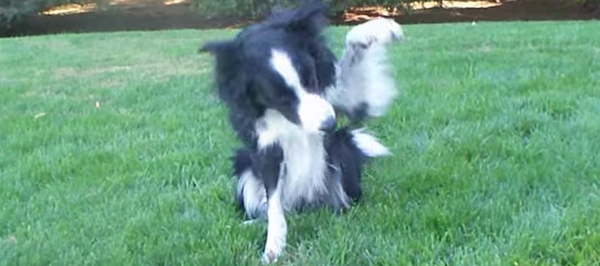
We all know that feeling — puppy blues — when you finally get that new puppy you’ve wanted for months, and then the hours, days, and weeks fly by as you revel in all the new furry fun. But what if suddenly, after those first few euphoric weeks, your pup’s enjoyment starts to wane? You begin to feel a bit down like something is missing.
Welcoming a new puppy into your home can trigger post-puppy depression (PPD), an experience that’s real for many dog owners. But, if you’re coping with PPD after getting a new pup, don’t worry — there are ways to get through it. Here’s what you need to know.
Tips for Lessening the Puppy Blues
You may take specific actions to try to lessen that emotional distress, whether you are going through the puppy blues or are worried that you might want it in the future.
Before obtaining a new puppy, it’s necessary to study puppy ownership because, if overdone, it could lead to additional stress. You’ve probably already done a lot of studies. You are knowledgeable about the requirements and duties of puppy ownership if you have just adopted a puppy or have been considering adopting one.
While there are developmental milestones that every healthy puppy will reach, it’s vital to remember that every dog has a distinctive personality and that various breeds have varied demands. As a result, even though cognitively, you may be ready for a new puppy, the experience may not live up to your hopes and may demoralize you. Additionally, the personality development of your puppy may take some time, which can be frustrating.
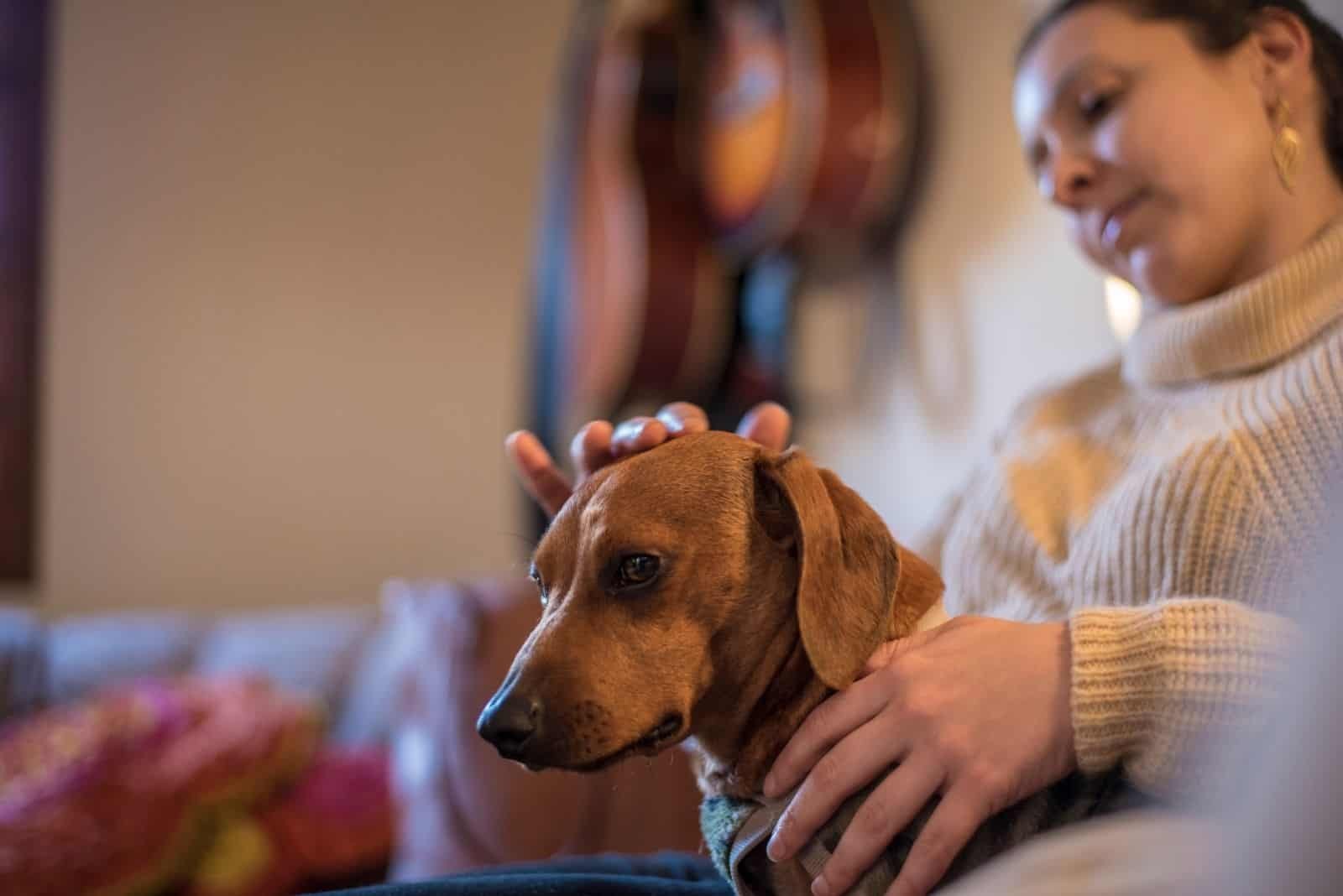
Before You Get A Puppy
Set Your Puppy’s Schedule In Advance
Making time for yourself can be facilitated with a schedule. It is simple to experience the puppy blues while caring for a puppy without taking breaks. However, you could discover that you and your new dog manage the milestones more smoothly if you have a plan, particularly one you’ve created based on research.
Another strategy to prevent the puppy blues, which can manifest as hopelessness or a sense of being overwhelmed, is to keep track of the puppy’s progress and your improvement throughout the experience. It could be simpler to get through the challenging phases of puppy development if you make a diary of what has gone well and what you anticipate happening in the future.

Teething
Puppies get their puppy teeth approximately four weeks old, lose them, and then start to erupt their adult teeth sometime between four and six months later. This may lead to irritation as the puppy’s new teeth explode and experimental biting while they still have their baby teeth, which may result in displeasure. However, if you anticipate and modify this behavior, you could feel more in control.

Consult a Professional in Therapy or Canine Behavior
Making a therapy consultation to talk about coping mechanisms for your impending lifestyle shift may also be an intelligent option. Again, empathizing with the puppy is critical, and comprehending what it will be going through. Still, it’s also crucial to have compassion for yourself and refrain from passing judgment on yourself as you adjust to this significant change in your life. Any emotional issues you may have can be addressed by a therapist, who can also offer guidance on dealing with impending pressures.
Communicating about your new pet with a dog trainer or behaviorist is also a good idea. They can help you set reasonable expectations for what to expect and can inform you of what is “normal” for this stage of your new dog’s development. Many of the stressors of being a new dog parent can be significantly reduced by understanding what you are getting.

Find Out What to Expect
Learn more about the growth milestones of pups, create a timetable and a mechanism to track progress, and speak with a therapist or pet specialist about the impending change in your life if you haven’t already obtained the puppy but are worried about getting the puppy blues.
It could be simpler to deal with if you know what “normal” for your puppy is. For instance, knowing that the “fear period” is between eight and twelve weeks old and that puppies are typically adaptable at or after eight weeks of age may assist you in comprehending why your puppy may be having problems adjusting.
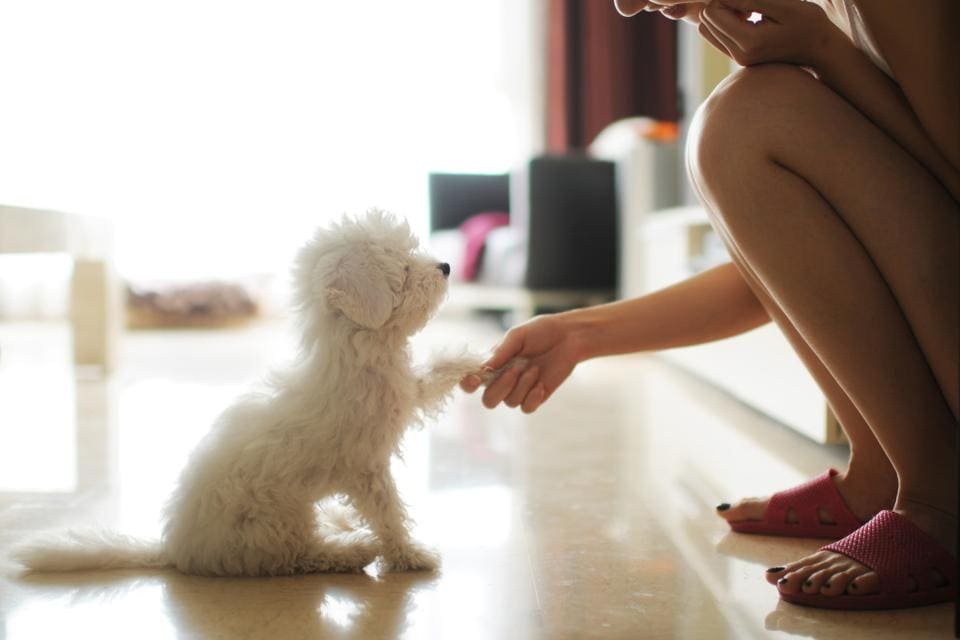
After You Have the Puppy
If you already own the puppy, taking care of yourself, looking for support, and getting enough sleep are some things you can do to help with the puppy blues.
Get Enough Rest
Increased sleep is one easy method to lessen the sense of helplessness that often accompany puppy blues. This could seem unattainable at times, but if you can crate your puppy or keep them in a different space at night, you might find it simpler to sleep. Although pups lack the same bladder control as adult dogs, setting alarms to get you up periodically during the night to allow the puppy out may indeed be easier (and healthier) for you.

Solo Time
Even while it could be challenging to resist the want to feel guilty about taking time for yourself, if you can manage to take a break from the dog now and then, you’ll probably be more equipped to face challenging situations when they arise. This is one of the reasons it’s crucial to crate-train your puppy as soon as possible: If your puppy feels at ease in its cage, you may decide to leave it unattended for a short period. If you feel comfortable doing so, you may take a quick break by taking your puppy to a different home.

Your Mental Well-Being
You should speak with a therapist or mental health professional if you are suffering from severe puppy blues, have suicidal thoughts, or your symptoms have not decreased after a few weeks. Do not be embarrassed by your difficulties; others have experienced similar things, and you are not a failure for feeling the way you do.

Have a Support System
Having dependable friends or relatives can also be beneficial. Having someone to talk to about how you are feeling may help relieve the puppy blues, even if no one can relieve you of the duty of caring for your puppy or standing in for you for brief periods. Finding acquaintances with dogs who can offer a friendly audience is not problematic.
A counselor might be a beneficial alternative to family or friends for support and discussion; additionally, numerous online communities and clubs are oriented around puppy care, some of which are even established, particularly for puppy blues.
Encouragement might also be provided through instruction by signing up for puppy classes or receiving one-on-one assistance from a trainer. Although much advice is available online and in books, it might solve specific problems more successfully in a situation where someone else can directly assist or address concerns.

Rehoming a Puppy or Dog
Many folks who go through the puppy blues feel so overburdened that they cannot think of any other option but to find a new home for the dog. If you believe that this would be the best course of action, it is crucial to consider all of your selections thoroughly. Nevertheless, you shouldn’t feel guilty about your choice if you ultimately decide it is the best alternative for you and the dog.

What are “the Puppy Blues”?
Anyone who adopts a new dog or puppy is susceptible to the puppy blues, sometimes referred to as puppy depression, post-puppy sadness, or postpartum puppy depression. It might cause emotions of guilt, profound grief, anxiety, or overburden related to your new family member, similar to postpartum depression.
Even though puppy blues is not a recognized medical disorder, it exhibits several symptoms that are both distinctive and similar to those of other illnesses, including anxiety and depression. In general, puppy blues last for a few days to a few months after adopting a dog or puppy, which makes it unique in that it rarely lasts for a long time.
Aggravating aspects of a puppy’s development, such as bathroom accidents, biting problems, and prolonged crying or whining periods, can produce the puppy blues means that the condition does not continue for very long. While we can outgrow some of these problems, others will need training to resolve them.
Puppy blues could appear in the first few days or weeks following adoption, but they might also return if new problems arise. However, subsequent relapses frequently don’t last as long or aren’t as painful as the initial bout with the puppy blues.
It’s crucial to remember that the puppy and the family won’t be great friends immediately and will need some time to get to know one another. In addition, puppies are forming their personalities and learning how to express their wants, much like newborn babies are effective. So naturally, this can occasionally make the new owner frustrated.
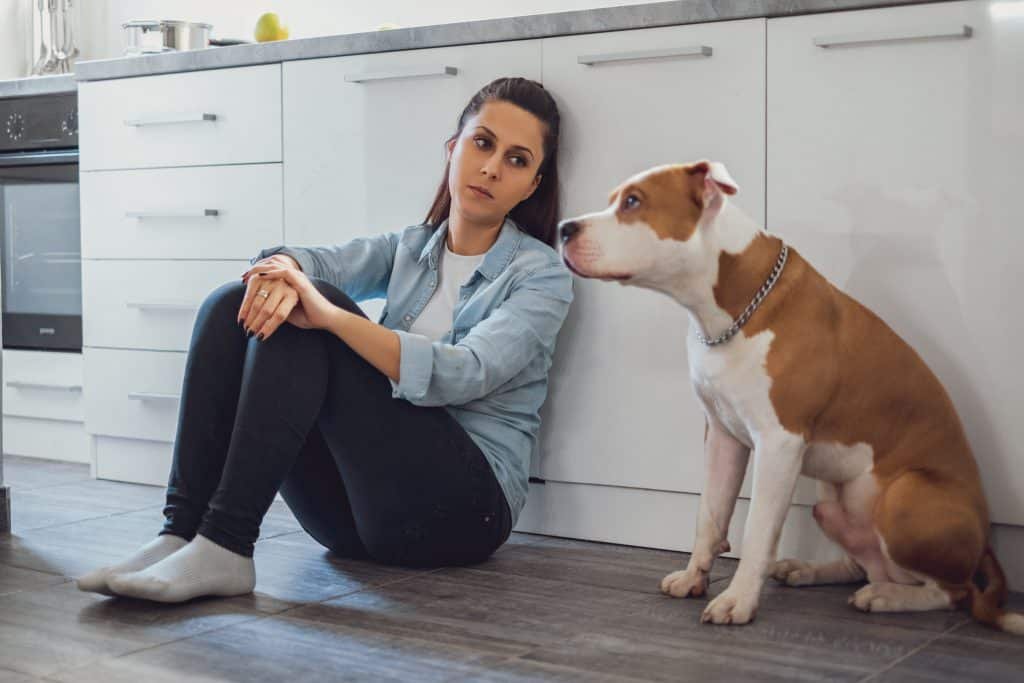
Although the term suggests that the condition only affects puppies, new owners of older dogs can also experience puppy blues. Time is crucial in recovering from the puppy blues for new pups and owners of “new” older dogs. New owners do not only experience the puppy blues; seasoned dog owners can also get them after getting a new dog.
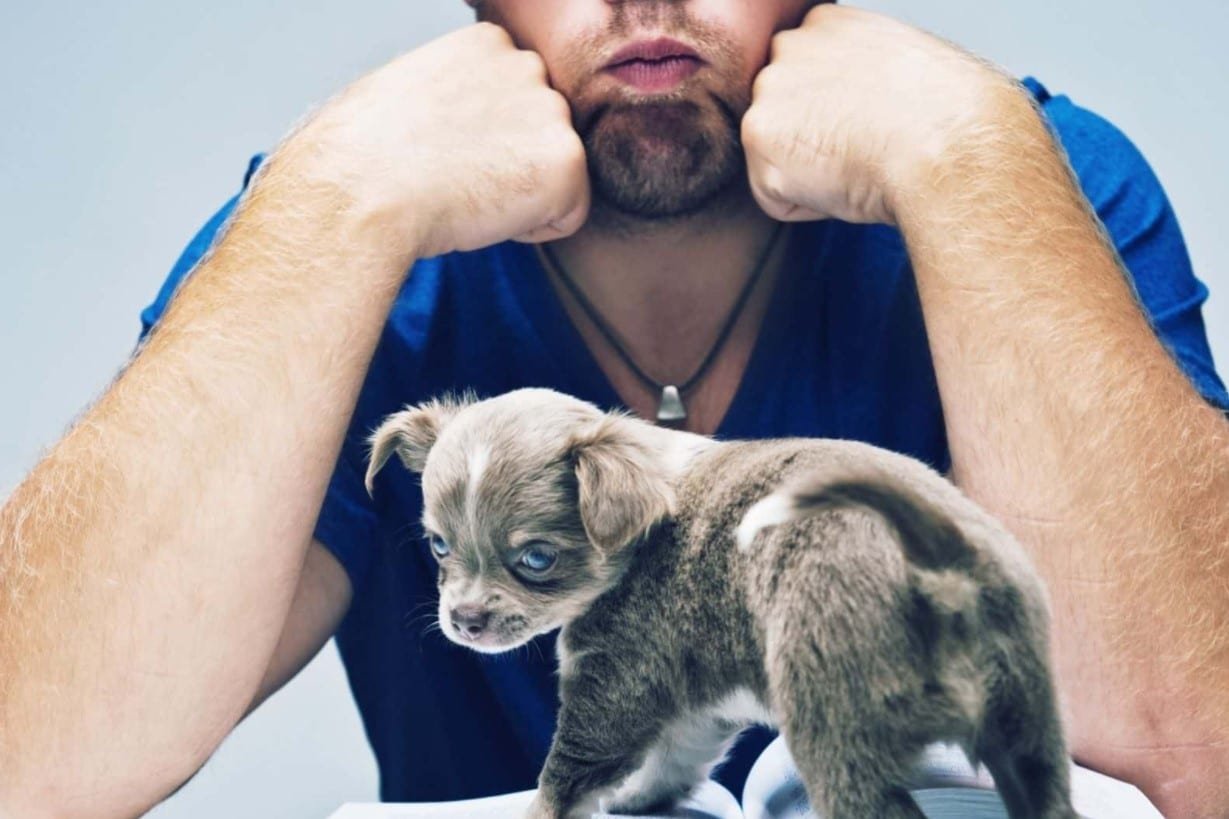
Is puppy blues a form of depression?
Puppy blues are a form of mild depression that can affect new dog owners. It is a type of postpartum depression in new pet owners. Caring for a new puppy is a big responsibility, just like human babies. There’s a lot to learn, and sometimes it can feel overwhelming. As a result, it’s not uncommon for new puppy parents to feel isolated, anxious, or even depressed. If you’re feeling any of these emotions, you may be experiencing puppy blues.
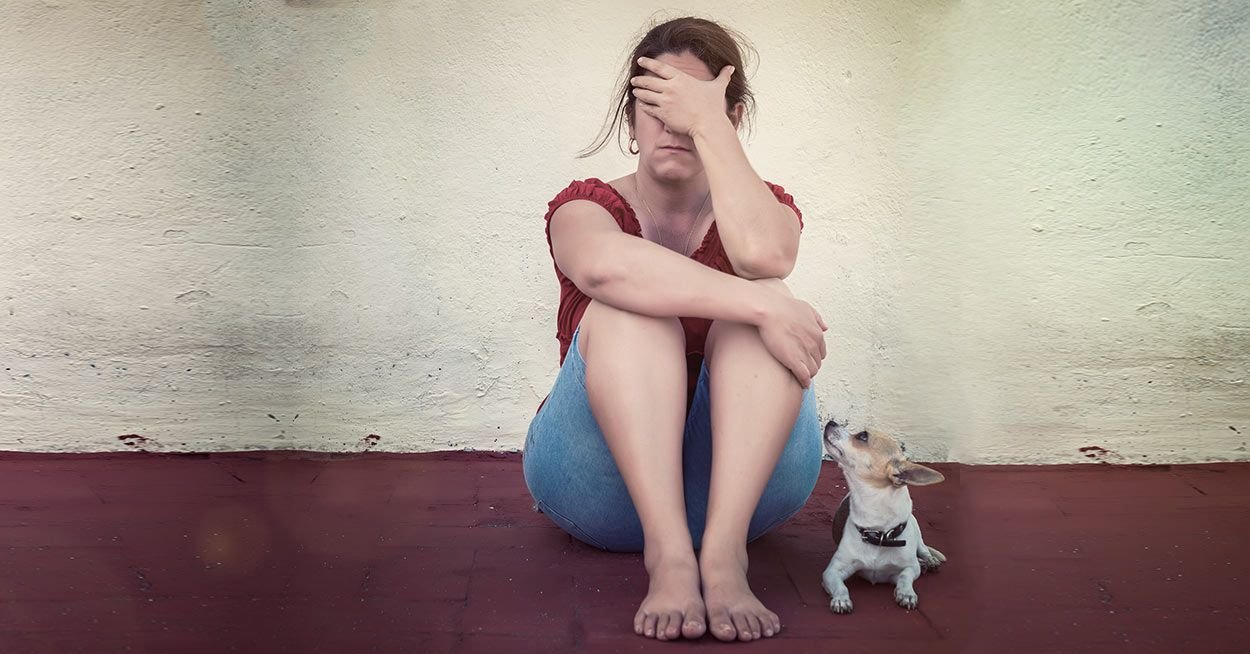
Is Puppy Blues normal?
Yes, puppy blues are standard.
How long do puppy blues last?
A timetable for puppy blues does not exist. You may even go through them every time you bring a new puppy into your home; they can endure for days, weeks, or even months.
Many individuals find that as they get into a pattern and their puppies progress with basic training, the emotions of puppy depression go away.
Each dog is unique, and some breeds might not be the best fit for all kinds of lives. A high-energy herding breed, for instance, could not adapt to apartment living in the inner city. Some puppies, meanwhile, have louder voices or require more time to train.
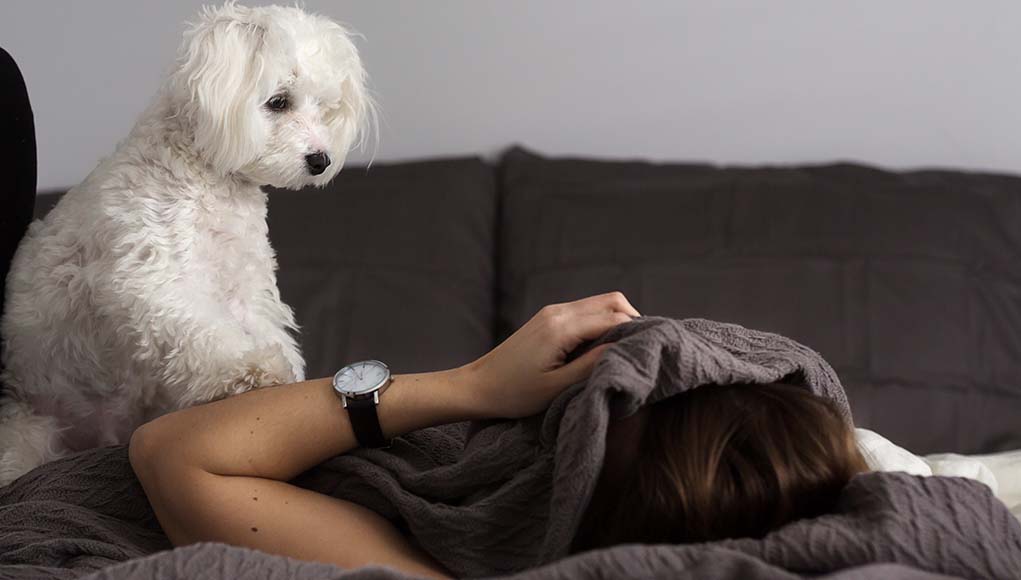
Common Causes of the Puppy Blues
Unmet expectations, feeling overburdened, or lifestyle changes can all contribute to the puppy blues. In the first scenario, the owner’s expectations for the experience of getting a new puppy might not be met (or were led to expect). Devastation or even rage against the dog may ensue from this.
Getting a new puppy is thrilling, and the dog and owner may form a close attachment over time. However, some media may mislead potential owners into thinking this bond will create instantly after adoption. Whether the new dog is a puppy or an adult, and whether you are a first-time puppy owner or a seasoned dog owner, the amount of time it takes to bond will vary from dog to dog. Regardless of the age of the new dog, however, the adjustment process will take time.
A new owner may become overburdened and experience the puppy blues if exposed to too much information, even restorative materials. To understand what to expect from their new puppies, prospective owners should study. However, if they learn too much or their puppy behaves differently than they had hoped, it could confuse or demoralize them.
Changing one’s way of life can be extremely difficult and result in anxiety, despair, or a sense of alienation. In that it affects at least two people—the owner and the dog—adopting a new puppy is one of the more radical lifestyle adjustments.
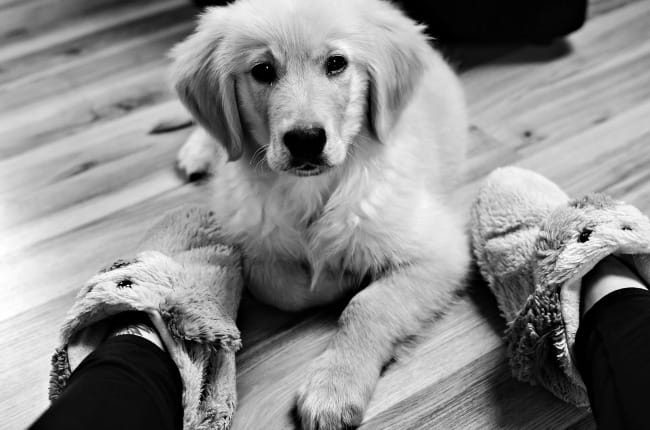
A big responsibility comes with caring for another living thing. It can be emotionally draining to feel unable to fulfill that responsibility or provide for the animal’s (or your own!) needs. In addition, it can feel overwhelming when you factor in the stress brought on by the loss of sleep experienced by many new puppy owners due to nighttime bathroom breaks.
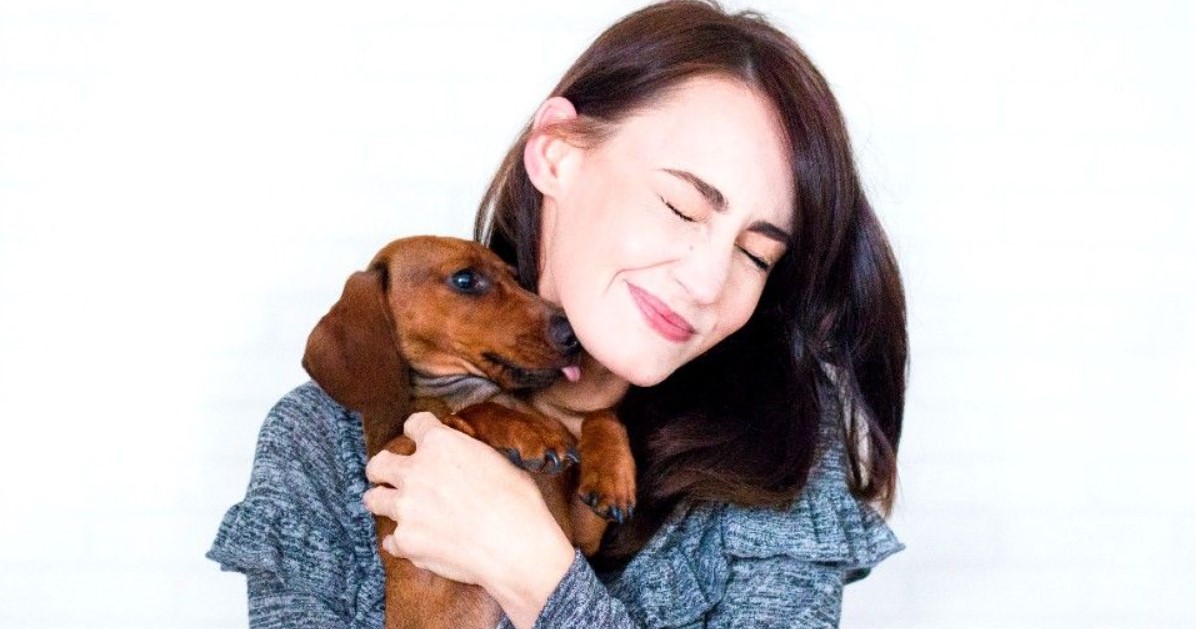
Common Symptoms of the Puppy Blues
Feeling numb, guilty, resentful, or trapped are additional symptoms of puppy blues, anxiety, depression, and regret. These are mostly related to the lifestyle adjustment that comes with obtaining a new dog, particularly the increased demands on the owner’s time and attention. Unfortunately, the lifestyle adjustments brought on by a new puppy may make an owner’s preexisting mental health issues worse.
Exhaustion, heightened irritability, weight gain or loss, or attention problems may also result from disruptions to the new owner’s life and schedule; some of these symptoms may be related to sleep deprivation or ongoing disorders and general exhaustion brought on by having a new puppy who needs to be let in and out and who may vocalize throughout the night.
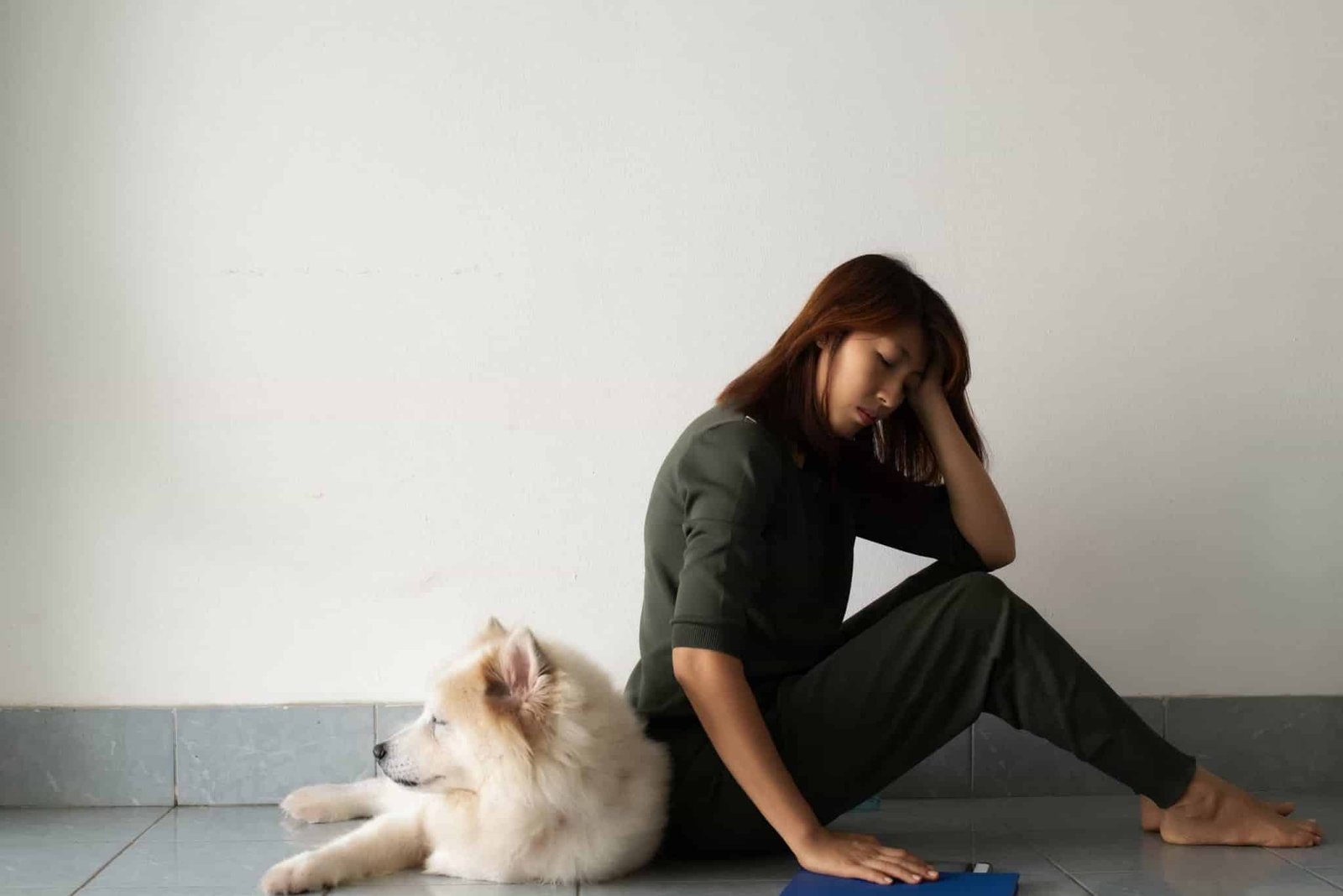
Can I still get Puppy Blues if my puppy is 6 months old?
Every puppy is unique, and while there are mellow 8-week-old puppies, some people still have trouble with 6-month-old puppies.
Can I get the puppy blues with a rescue dog?
Yes, you can get the puppy blues with a rescue dog. Of course, adopting a rescue dog is a very noble thing to do. But sadly, many of these dogs have been through some tough times and may be dealing with some baggage.
This can mean they may not be as ‘easy’ as getting a puppy from a breeder. As a result, it’s not uncommon for people to experience what’s known as the ‘puppy blues’ when they adopt a rescue dog. The good news is that there are some things you can do to prevent this from happening.
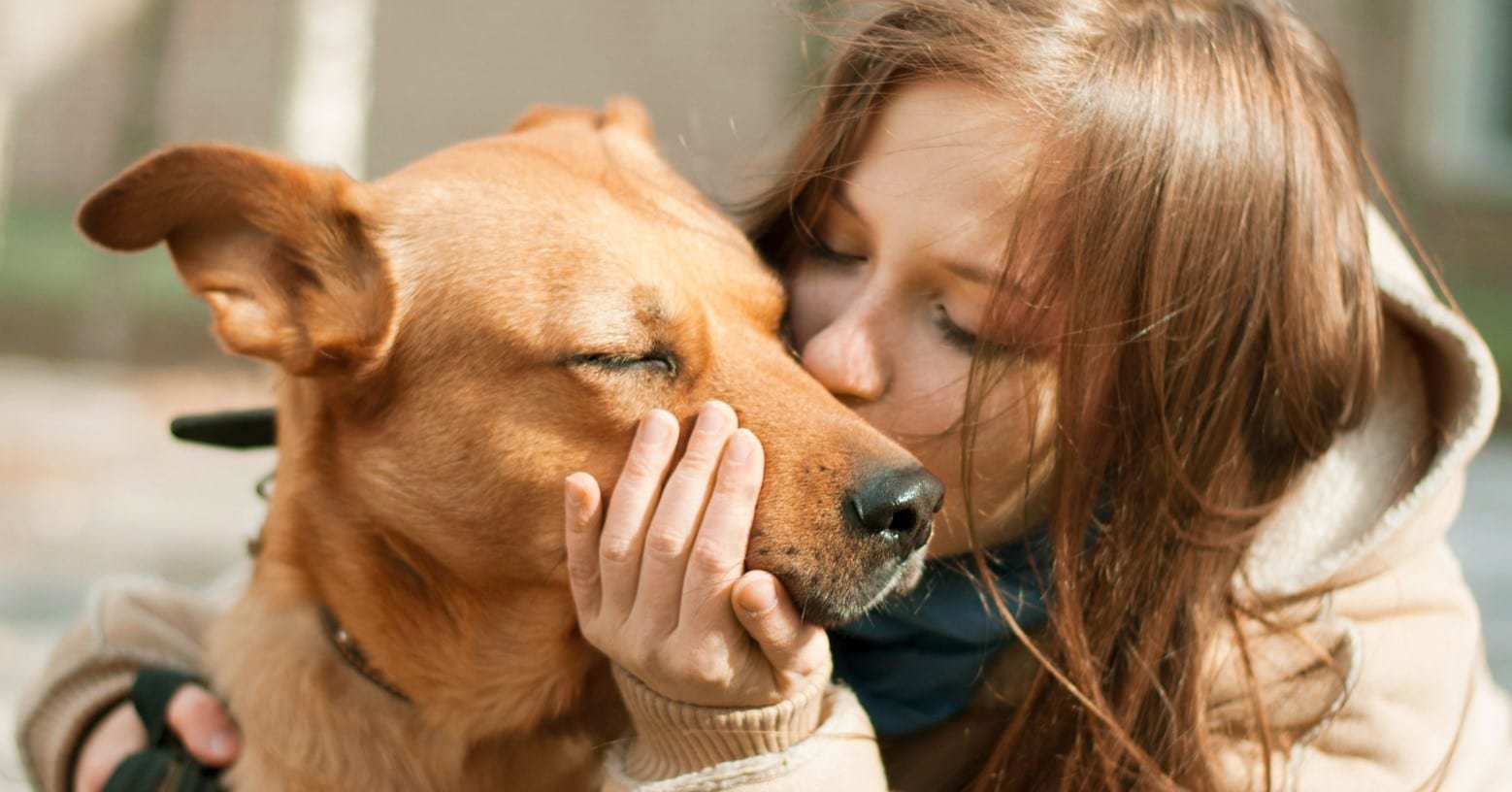
Do Your Research
Before you bring your new rescue dog home, it’s important to do your research and learn as much about them as possible. This includes their history, personality, and any behavioral issues they may have. The more you know about your rescue dog, the better equipped you’ll be to handle them once they’re home. Additionally, if you have any specific concerns, you can address them with your veterinarian ahead of time.

Set Some Rules
Once your rescue dog is home, setting some rules and establishing yourself as the alpha is important. This will help your rescue dog feel secure and prevent them from acting out of anxiety or fear. Establishing rules also means being consistent with feeding schedules, potty breaks, and bedtime routines. The more predictable you can make their life, the better.

Be Patient
One of the most important things to remember when adopting a rescue dog is to be patient. It will take time for them to adjust to their new home and get used to their new family. So, don’t expect them to be perfect immediately—give them time to settle in and relax. In the meantime, continue following your rules and remain consistent with their care and training.

Post-Puppy Blues
The First Few Days
The first few days with your new puppy are filled with excitement. You’re both getting to know each other and figuring out the ropes. Your puppy is exploring their new home and finding its place in the pack (aka your family). This is a lot for a little pup to take in! So it’s completely normal if they’re tired and grumpy during this period. They may not eat or drink as much as usual, either. Just give them some space and time to adjust.

The First Few Weeks
Once your puppy has settled in, things should start to go more smoothly…but there will still be some bumps in the road. Puppies have tiny bladders, so they need to go out frequently—usually every few hours. They may also have accidents inside, even if they’re already house-trained. Chewing is also a big issue as puppies explore the world with their mouths. Be sure to keep anything you don’t want to be ruined out of reach!
Additionally, puppies need A TON of sleep—up to 18 hours a day! So don’t be surprised if your new furry friend spends most of the day sleeping.

The First Few Months
By now, your puppy should be starting to get into a routine. But there are still a few things you can expect. For example, teething can cause puppies to chew more than usual (ouch!). And as they continue to grow, they may go through “growth spurts” where they eat more than expected or seem restless. Like humans, every puppy is different, so trust your gut and consult your veterinarian if you have any concerns.
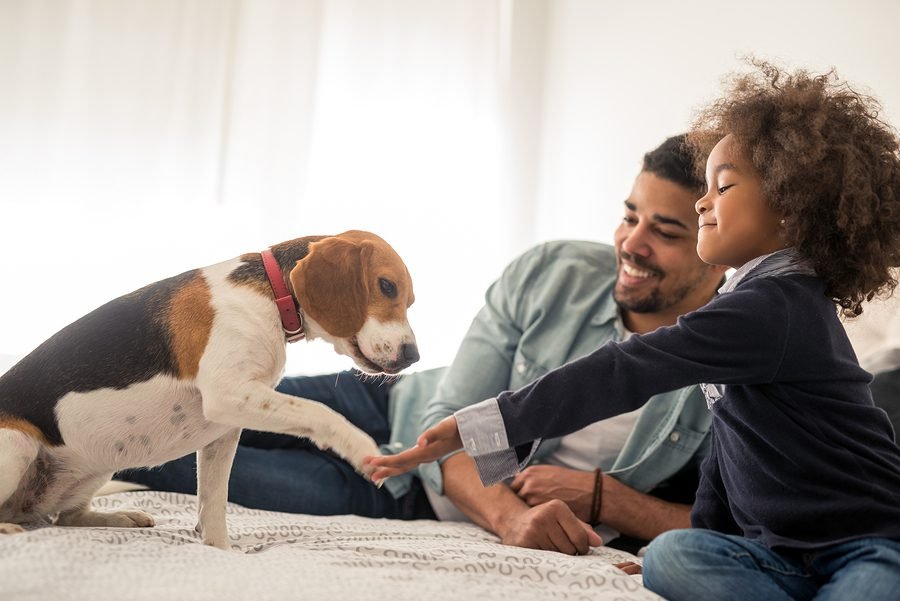
Is crate training helpful or just stress-inducing?
The American Animal Hospital Association (AAHA) and the American Kennel Club (AKC) both endorse the practice of crate training and provide materials to help you get started.
Crate training is a strategy to give your puppy a safe place to feel safe and secure when carried out as planned. In addition, it can help soothe your dog and serve as a technique for lowering anxiety.
However, crate training is not about isolating your dog for “time-outs” or making them retain its urine.
Puppies could not first comprehend the crate. Therefore, if they are frequently confined to crates to keep them out of harm’s way or trouble, it may result in tantrums or barking. Some dogs have even been known to trash their kept crates.
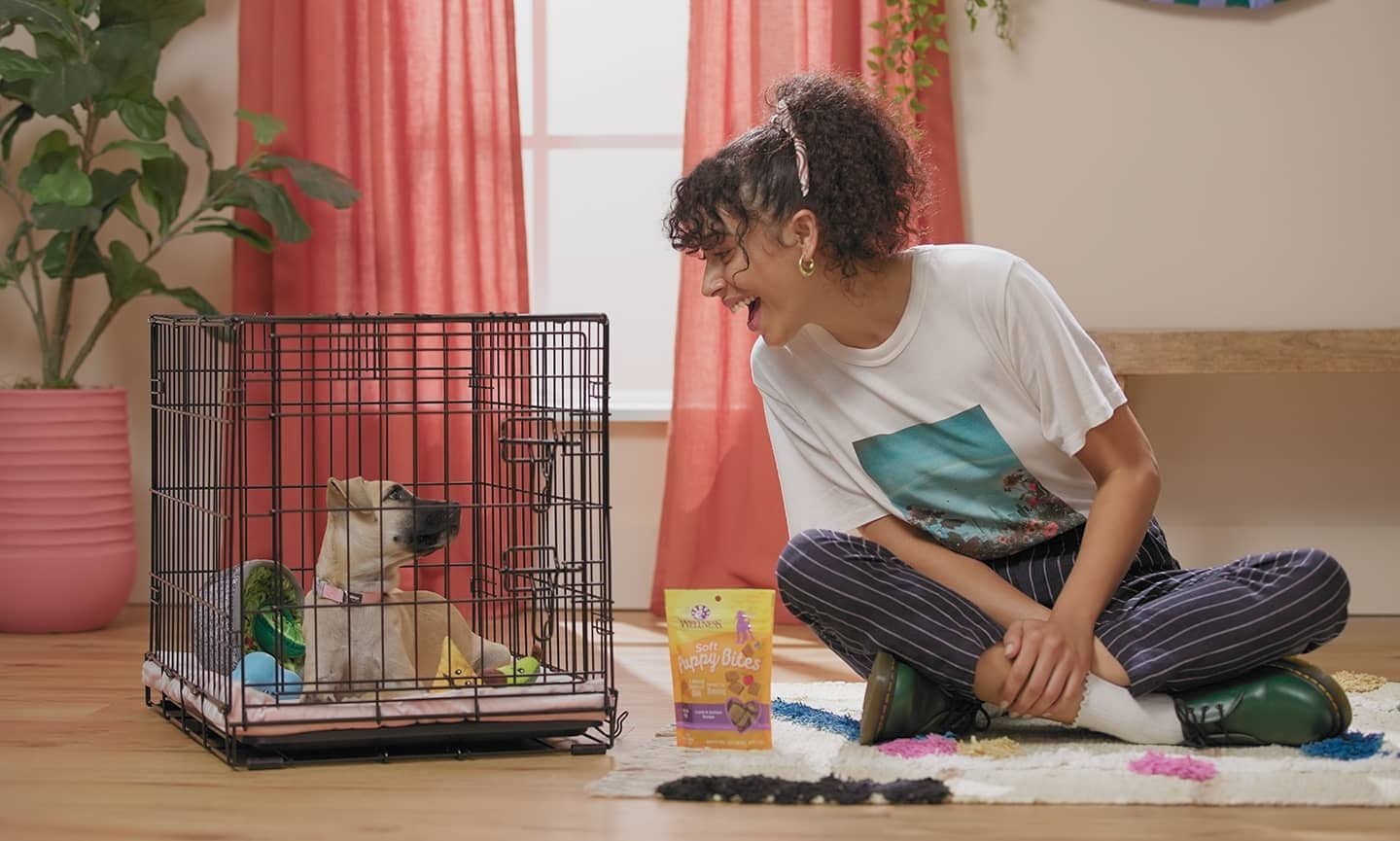
But there’s no reason why owners and puppies have to fight over crates. Consult your veterinarian or a dog trainer if you’re uncertain how to utilize them.
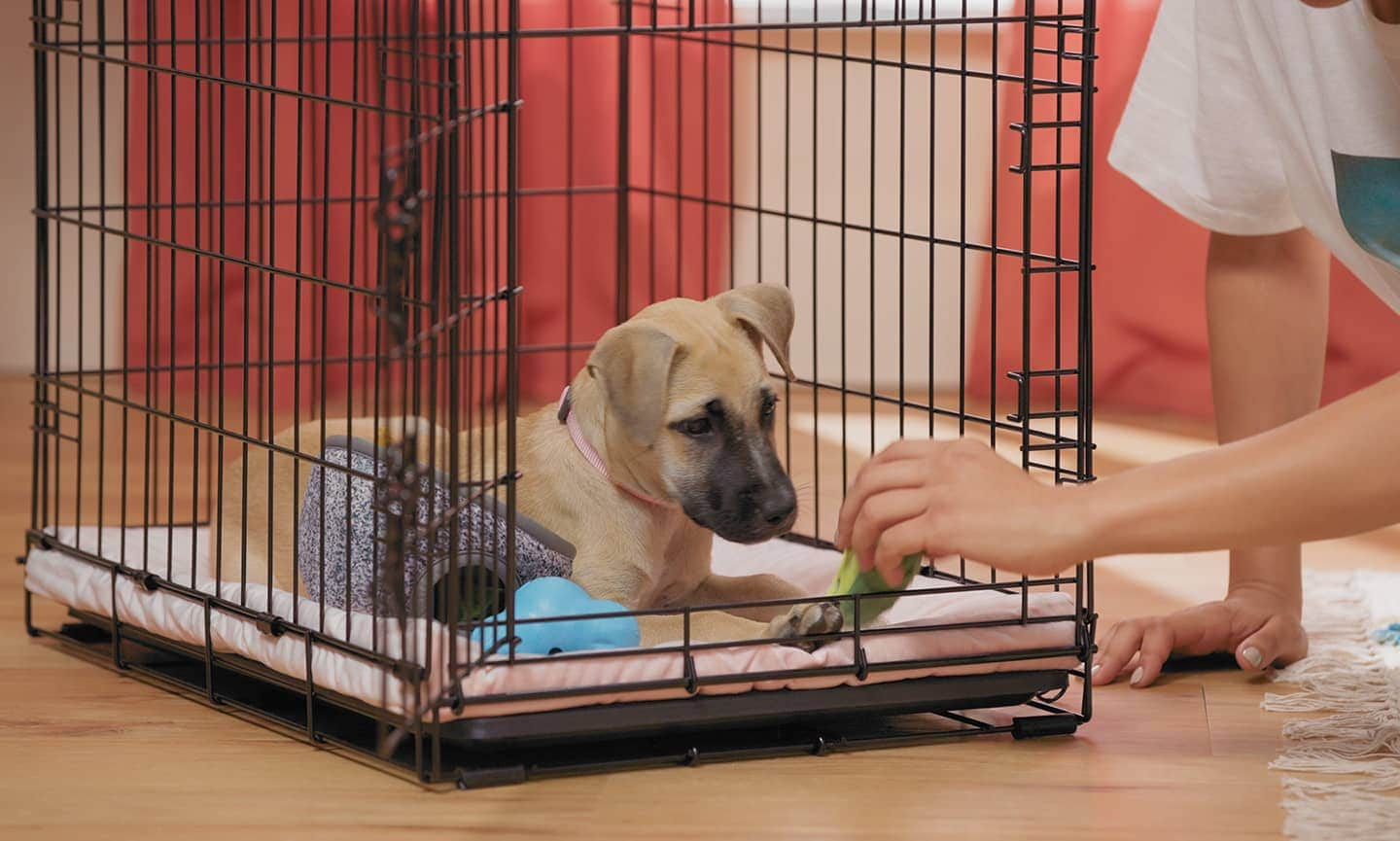
Conclusion
It may seem daunting to manage the puppy blues while still giving your new pet the attention they need, but remember that you aren’t alone. Several other people have gone through what you are. With proper expectation management and lifestyle adjustments, you might be able to lessen the puppy blues’ harmful consequences, but the reasons might still exist.
The puppy blues may often be overcome with time and persistence. While the waiting period may be agonizing, understanding the different stages of a puppy’s development and looking forward to the puppy entering the next step can help to lessen emotions of pessimism.
Your brand-new puppy is going through a lot and developing in front of your eyes. Even while it could be challenging at times to resist feeling that way, they do not wish to make you angry or frustrated. You could be in a tough place right now, but things will probably get better in a few months or even a few weeks when your puppy is in a different developmental stage. Even if it seems impossible now, the puppy blues won’t endure forever, and your attachment will grow over time.

Frequently Asked Questions
According to anecdotal data, the three weeks immediately following the onset of puppy blues are typically when they are most severe. After then, symptoms could still be present but feel easier to control. Usually, this happens within three months. A timetable for puppy blues does not exist. You may even go through them every time you bring a new puppy into your home; they can endure for days, weeks, or even months. Many individuals find that as they get into a pattern and their puppies make progress with basic training, the emotions of puppy depression go away. The phrase "puppy blues" refers to the unpleasant sentiments and experiences that some people have after bringing a puppy home. Many puppy parents, especially first-time dog owners, have overwhelming feelings of helplessness when the first ecstasy of the fluffy bundle of fun wears off. Puppy parents frequently experience overwhelming feelings in the initial weeks and months after welcoming their new pet into the family. Most overwhelming problems are related to being a puppy and may be handled with practice and patience.How long do post puppy blues last?
Will puppy blues ever go away?
Is it normal to feel depressed after getting a puppy?
Is it normal to be overwhelmed by a puppy?



